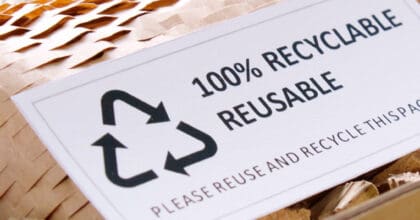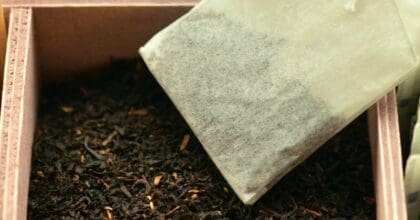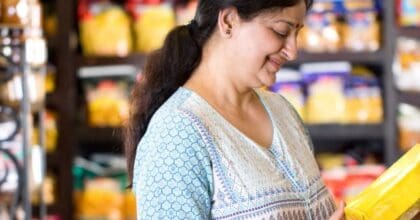Earth Day is a time when we reflect on our daily habits and consider what we can do to help our planet. Perhaps that means practicing composting, ensuring we’re responsibly recycling or reconsidering our packaging habits. But that conversation seldom focuses on what we’re wearing or how we’re shopping. If the goal is to make decisions that better protect the planet, why not start with what’s in our closets?
Fashion is one of the largest polluting industries and reportedly produces more than 90 million tons of waste each year, 4% of the world’s waste. In fact, some notable brands and retailers have recently been called out for their unsustainable practices, including Burberry. In 2018, it was revealed that the luxury fashion house had set fire to nearly $40 million worth of unsold merchandise, a practice which they’ve since vowed to stop. While it may seem like an impossible task to tackle, many fashion companies and brands are actively making changes to reduce their use of plastic and better educate consumers on how they can make a difference.
In celebration of Earth Day, here are a few examples of companies that are helping the fashion industry be more sustainable:
Madewell

In February 2019, Madewell expanded its sustainable efforts with the launch of its first swimwear collection. The eco-friendly line, called Second Wave, features fabrics made from recycled plastic bottles, citing a total of more than 50,000 bottles recycled to produce the entire collection.
Girlfriend Collective
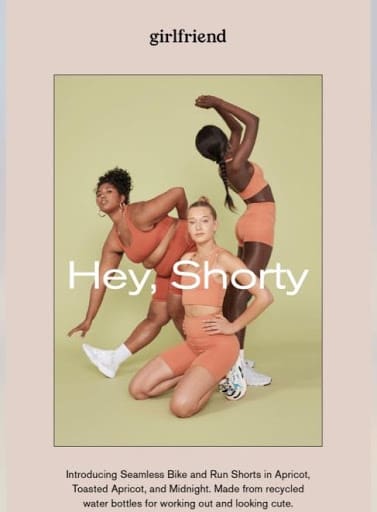
Everlane
In addition to ethical factories and exceptional quality, Everlane’s mission is a focus on “radical transparency.” As a result, the direct-to-consumer retailer has incorporated sustainability and transparency in nearly every part of its model, from sourcing to design to customer communication. In 2018, the retailer launched ReNew, an outerwear collection for men and women made from recycled plastics. As noted on their site “it’s outwear with an outlook.”
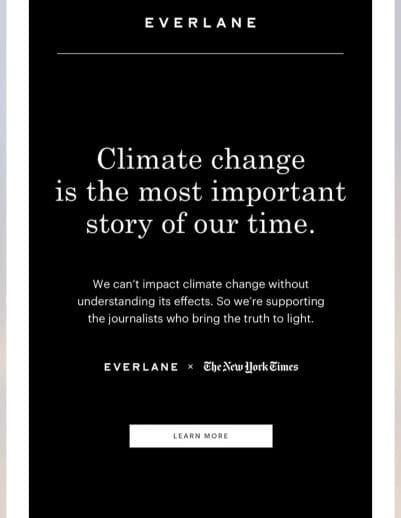
Reformation
Reformation has always been focused on sustainability, including responsible sourcing. It operates out of a sustainable factory in Los Angeles where guests can visit the factory in person to see the people making their clothes. Reformation also believes knowledge is power and strives to inform its customers how they can be less wasteful, including understanding how purchases from Reformation positively impact the planet. The brand’s website provides helpful resources regarding fashion’s impact on pollution, but those who make a purchase will receive a breakdown of the positive effects of their purchase, such as the amount of waste and gallons of water saved.
Doen and The RealReal
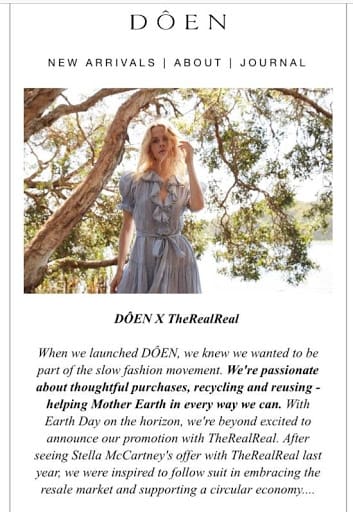
The retailer is partnering with luxury reseller The RealReal during the month of April, encouraging customers to bring unwanted Doen items to any of the reseller’s locations. Once items are accepted for consignment, customers receive a $50 credit to shop on Doen’s website for new items, encouraging them to maintain their shopping with responsible and sustainable retailers.





















